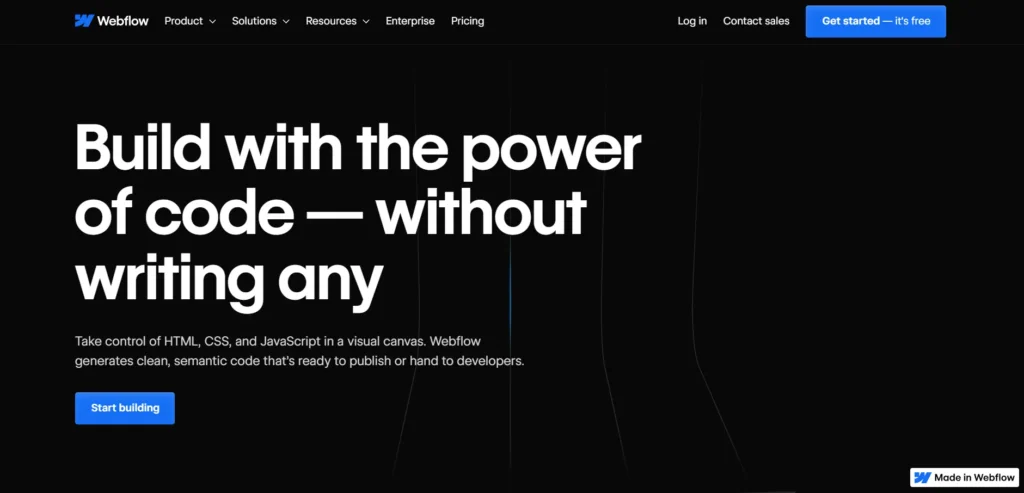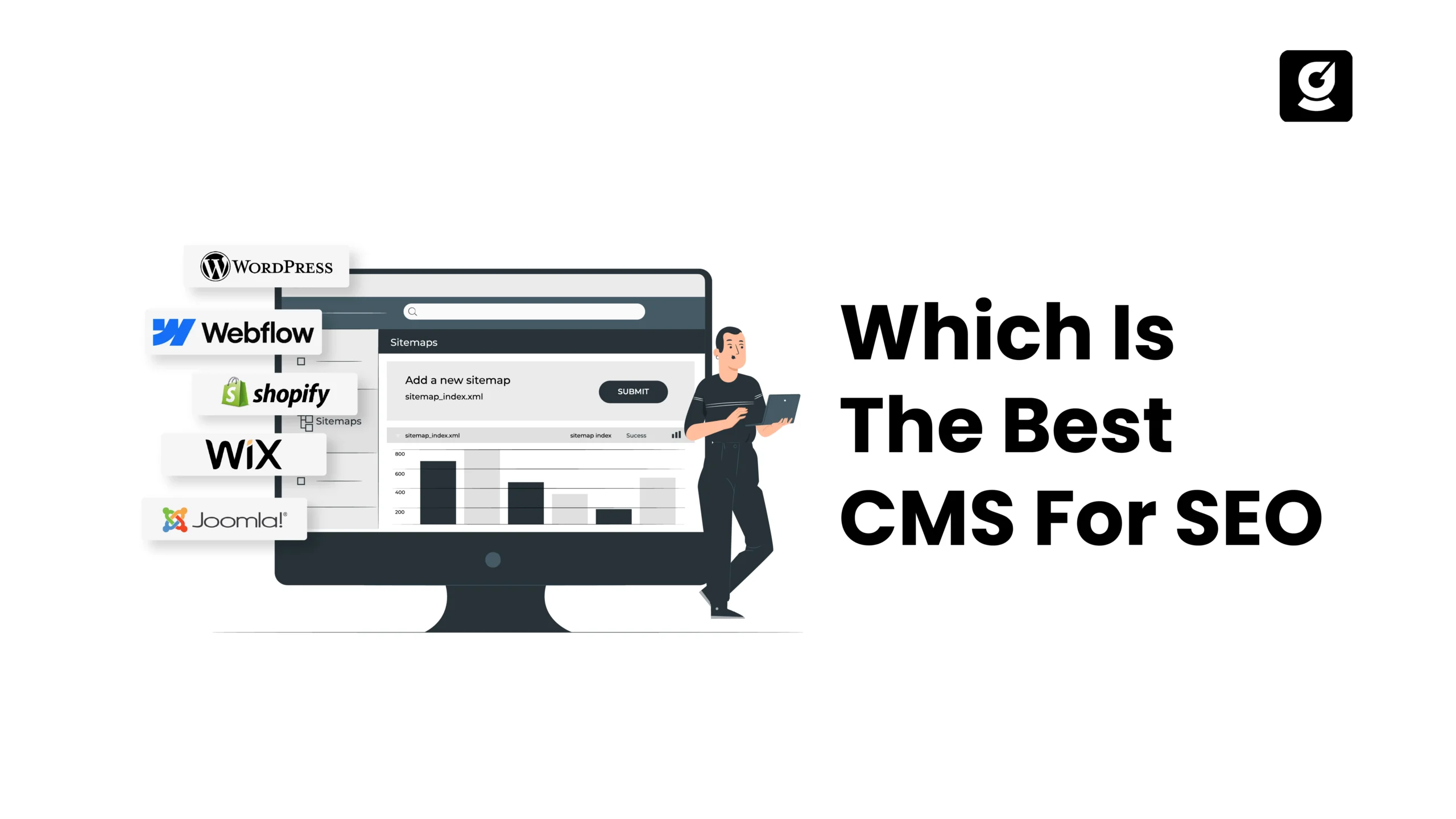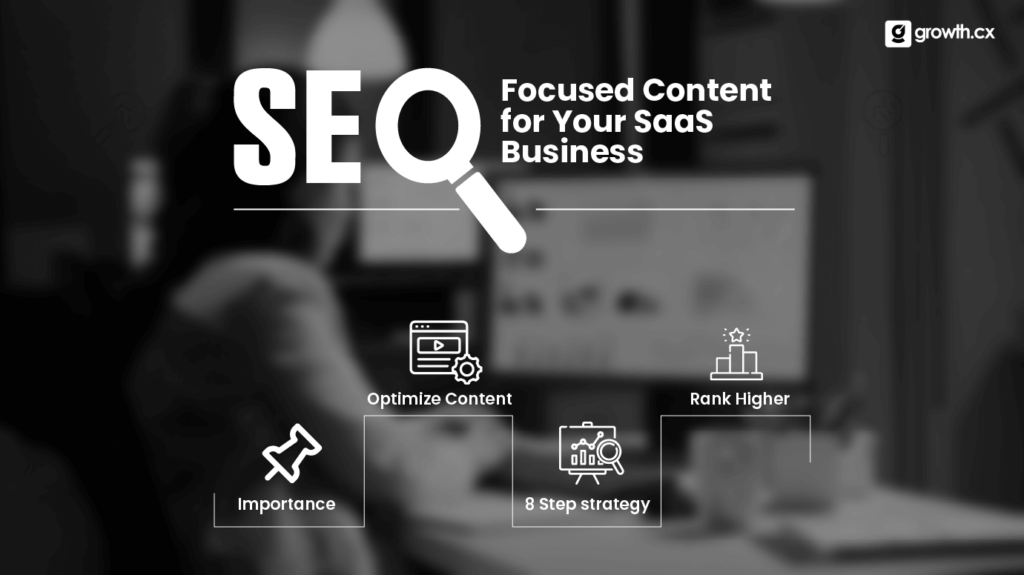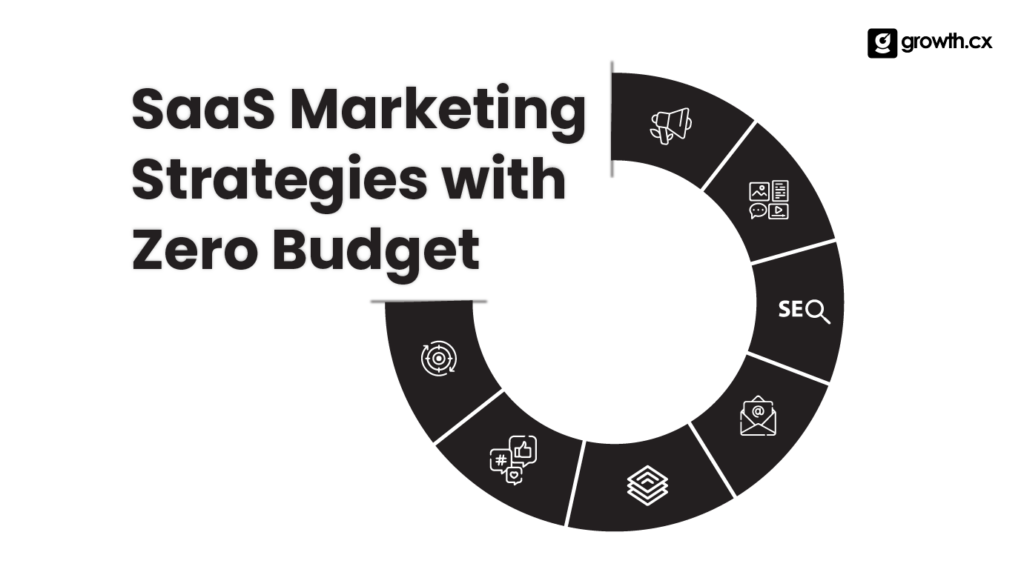Did you know that 93% of all online experiences start with a search engine?
That means your website’s visibility can significantly impact your business’s success in 2025. The connection between SEO and your Content Management System (CMS) is at the heart of this visibility.
Your CMS isn’t just a tool for managing content and it shapes how search engines understand your site. From handling meta tags to ensuring your pages load swiftly, the right CMS can help you secure that coveted first-page ranking. But with so many platforms to choose from, how do you decide which CMS works best for SEO?
In this guide, we’ll explore what makes a CMS SEO-friendly, compare the top platforms, and help you identify the best CMS to boost your search rankings in 2025.
Best CMS Platforms to Improve Website SEO
You must select the right Content Management System (CMS) to ensure your site is optimized for search engines. Below is a detailed overview of the best CMS platforms for SEO in 2025, highlighting their features, strengths, and limitations.
1. WordPress

WordPress remains the most popular CMS globally, and its SEO capabilities make it a top choice for businesses and content creators. It comes with a large library of prebuilt templates and plugins that are more user-friendly than other open-source CMSs. It is designed as a blogging platform; WordPress has developed into a flexible CMS suitable for personal blogs, business sites, e-commerce platforms, and enterprise-level websites.
SEO Features
- SEO Plugins: Tools like Yoast SEO and RankMath provide advanced optimization for metadata, XML sitemaps, and readability analysis.
- Customizable URL Structures: Easily create SEO-friendly URLs.
- Mobile Optimization: Themes are responsive, ensuring mobile-first indexing readiness.
- Content Customization: Flexibility in implementing schema markup and optimizing multimedia content.
Pros
- Ideal for beginners and enterprises alike, with unlimited customization options.
- On-page SEO friendliness
- Backed by a large community of developers offering plugins, themes, and tutorials.
- Seamlessly connects with tools like Google Analytics, WooCommerce, and SEMrush.
Cons
- Heavy use of plugins can slow down websites.
- Frequent updates are required to protect against vulnerabilities.
- issues on larger websites
- Advanced customization requires coding.
Pricing
- Personal: ₹420/month
- Premium: ₹790/month
- Business: ₹1260/month
- Commerce: ₹2240/month
- Enterprise: Customized Pricing
Read More: Comparison Between WordPress vs Webflow in 2025
2. Webflow

Webflow is a designer-friendly CMS that combines visual design with advanced coding flexibility. Known for its no-code approach, Webflow is popular among designers, marketers, and developers looking to build responsive, SEO-optimized websites without relying on plugins or external tools.
SEO Features
- Semantic Code Output: Generates clean HTML, ensuring search engines can crawl and index effectively.
- Built-In Performance Tools: Automatically optimizes images and ensures fast loading times to improve website performance.
- Structured Data Support: Visual interface for adding schema markup without needing to code.
- Customizable Meta Tags: Easily edit titles, descriptions, and open graph tags for every page.
Pros
- Fast-loading websites with built-in CDN and optimized hosting.
- Ability to export clean, W3C-compliant HTML, CSS, and JavaScript code.
- Reduces security risks and plugin compatibility issues.
- Highly Customizable Designs for visually-driven websites.
- Custom fields
Cons
- Advanced design tools may intimidate non-technical users.
- Costly for Beginners
- fewer third-party integrations
Pricing
- Starter: Free
- Basic: $18/month
- CMS: $29/month
- Business: $49/month
- Enterprise: Customizable Pricing
Additional Reading: Is Webflow Good For SEO? A Comprehensive Guide
3. Shopify

Shopify is a hosted e-commerce CMS designed specifically for online stores and retail businesses. All the users can create and manage online stores without needing extensive technical expertise. Shopify integrates seamlessly with payment gateways, marketing tools, and shipping platforms to streamline operations.
SEO Features
- SEO-Friendly URLs: Clean URL structures for product pages and categories.
- Built-In SEO Tools: Includes SSL certification, XML sitemaps, and 301 redirect capabilities.
- Mobile Optimization: Responsive themes ensure an excellent user experience on all devices.
- Integrated Analytics: Built-in tools to track performance and adjust SEO strategies.
Pros
- Perfect for non-technical users, with drag-and-drop customization.
- Improves page speed and overall performance.
- Tracks sales, traffic, and customer data in real-time.
- Easy product management
- All transactions will be secure.
Cons
- Customization is limited at the basic levels
- Many features require third-party apps with extra fees.
- It’s not ideal for content-heavy websites or blogs.
Pricing
- Basic: ₹1994/month
- Shopify: ₹7447/month
- Advanced: ₹30,164/month
- Plus: ₹1,75,000/month
4. Wix

Wix is a beginner-friendly CMS with a drag-and-drop editor designed to help users create websites quickly without coding. It’s an ideal choice for small businesses, personal portfolios, and startups looking for simple, affordable solutions with built-in SEO tools.
SEO Features
- User-Friendly SEO Settings: Guided tools for setting up meta tags, alt text, and headings.
- Structured Data Integration: Automates schema markup for local businesses and events.
- Mobile Optimization: Automatically adjusts design for mobile devices.
- Simplified Maintenance: Automatic updates ensure consistent performance and security.
Pros
- Perfect for beginners with no technical expertise.
- Get a professional website live within minutes.
- Affordable plans for small businesses and individuals.
- Regular updates
- large template library
Cons
- Less flexible for advanced SEO or complex sites.
- Speed issues for large, content-heavy sites.
- Difficult to move to another platform later.
- limits in customization
- less suitable for growing websites
Pricing
- Business Elite: ₹1599/month
- Business: ₹799/month
- Core: ₹399/month
- Light: ₹199/month
5. Drupal

Drupal is an open-source CMS renowned for its robust customization capabilities, scalability, and security. It’s ideal for developers and large organizations requiring complex websites with custom integrations and workflows. Drupal’s modular structure enables extensive tailoring for various industries, including government, education, and healthcare.
SEO Features
- Advanced Modules: Tools like Pathauto for custom URL creation and Metatag for metadata management.
- Security-Focused: Regular updates and strong encryption protect your site, maintaining trust and ranking.
- Performance Optimization: Handles large amounts of traffic without compromising speed.
- Customizable Schema Markup: Enables detailed structured data implementation for better SERP visibility.
Pros
- Handles high traffic and complex integrations.
- Ideal for large websites with evolving needs.
- security measures are at high-level
- built-in language support
Cons
- Not beginner-friendly.
- there are limited themes
- Requires skilled developers for setup and maintenance.
- The cost of hosting and development is higher than that of simpler platforms.
Pricing
- Core Software: Free.
- Hosting and Development: Starting from $30/month (hosting.
What Makes a CMS Platform SEO-Friendly?
There are so many CMS platforms available and not all are created equally when it comes to SEO friendly. To give your website the best shot at dominating search engine rankings, a CMS must offer specific features tailored to improve website performance and visibility.
- URL Structure Customization
A clean, readable URL isn’t just user-friendly—it’s a ranking factor. A good CMS lets you create SEO-optimized URLs like yourdomain.com/best-cms-for-seo instead of yourdomain.com/index.php?id=123.
- Meta Tags Management
Title tags, meta descriptions, and alt attributes are essential for SEO. A CMS that allows easy editing of these elements ensures your content communicates effectively with search engines.
- Mobile Responsiveness
With mobile traffic surpassing desktop, a CMS must ensure responsive designs that adapt seamlessly across devices, improving user experience and search rankings.
- Integration with SEO Tools
Look for built-in analytics and compatibility with tools like Google Analytics or SEO plugins. These integrations provide actionable insights to optimize your site further.
- Fast Loading Speeds
Page speed of your site directly impacts user experience and rankings. A CMS with features like caching and optimized code helps you improve website performance effortlessly.
- Content Management & Structured Data
An intuitive CMS should simplify organizing and tagging content. It should also support schema markup to provide rich, structured information that enhances search engine understanding.
A CMS with these SEO-friendly features doesn’t just host your site—it actively contributes to its success.
Choose an Expert SaaS Website Agency
Selecting the best CMS for SEO is a major step toward ensuring your website’s performance and content management success. In this blog you have known some of the the top platforms like WordPress, Webflow, Shopify, and more, each offering unique strengths tailored to different needs. Remember, your CMS isn’t just a tool, it’s a strategic partner in driving traffic and boosting rankings so select one wisely.
A good CMS is important, but so is hiring a SaaS website agency that really gets your business and its unique needs.
At growth.cx SaaS website Agency specialises in building scalable, user-friendly websites tailored to SaaS startups. With over 100 clients across various industries and years of experience, the agency delivers websites that are both visually appealing and also optimized for SEO and built with the best CMS platforms available.
What growth.cx Offer:
- Website UI/UX Design: Intuitive and engaging designs to enhance user experience.
- Website Development: Quality and scalable websites built using advanced technologies.
- Quality Testing: Comprehensive testing to ensure flawless functionality and performance.
- Third-Party Integrations: Seamlessly integrate your favourite tools and platforms.
- Support and Maintenance: Our expert developers will provide continuous support to keep your business website running smoothly.
- Migration and Upgradation: Effortlessly upgrade or migrate to a better CMS without downtime.
The professional approach focuses on preparing websites that are easy to manage, SEO-friendly, and tailored to your SaaS goals. With growth.cx, you can trust that your website is powered by the latest CMS technologies and designed to fuel your business growth.

FAQs
Which CMS platforms offer the best SEO features?
There are many CMS platforms available and the famous ones are WordPress, Webflow, Shopify are top choices. The features that these tools offer will be changed as per your website needs like advanced SEO plugins, flexible designs, and intuitive optimization tools.
Can a CMS improve website SEO and performance simultaneously?
Yes, a CMS with optimized code, caching features, and built-in SEO tools can enhance both SEO and overall website performance.
How do different CMS platforms compare for SEO in 2025?
WordPress excels in flexibility, Webflow offers great speed and design control, while Shopify leads in eCommerce SEO. The CMS choice depends on your needs and you can select one that is best for you.



